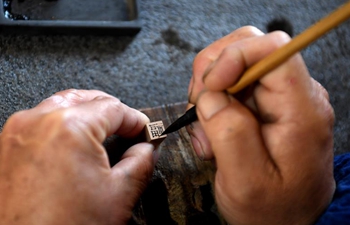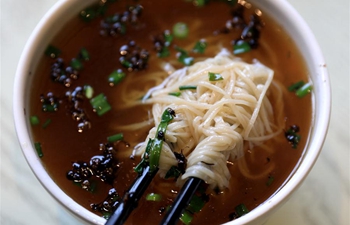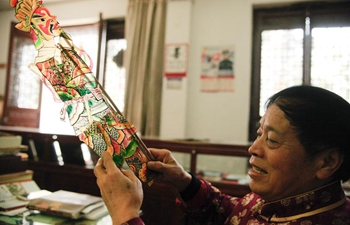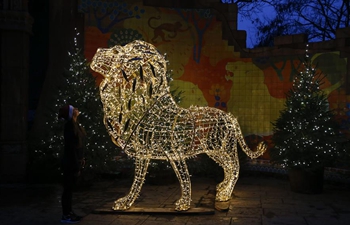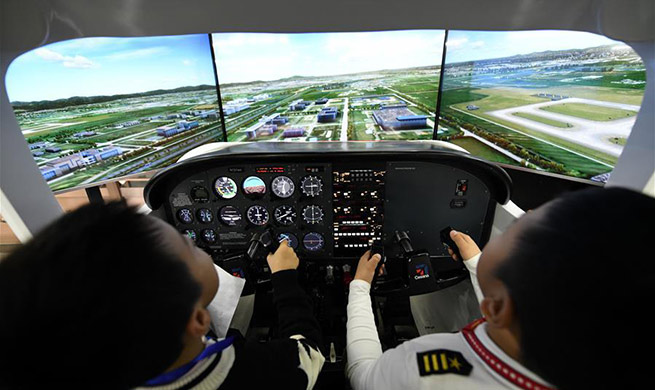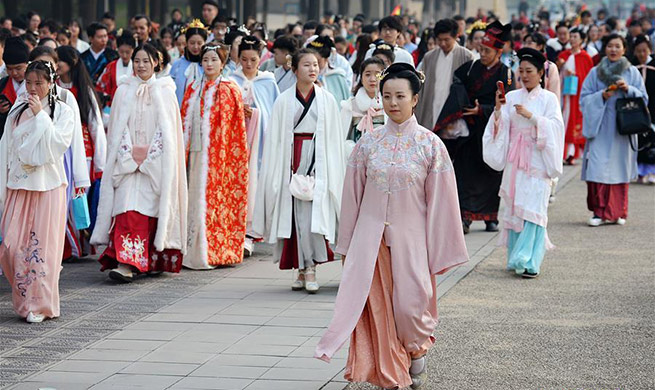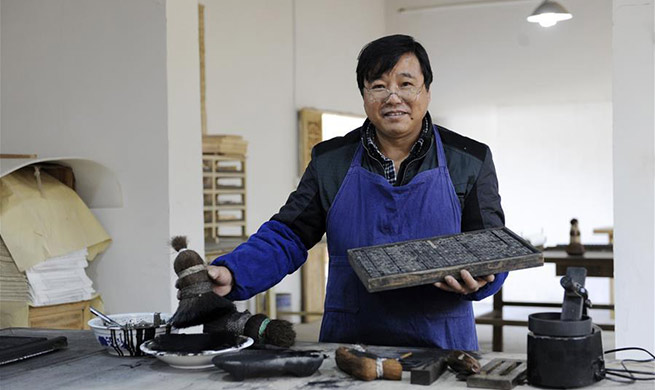DARWIN, Australia, Nov. 24 (Xinhua) -- Liang Huiqiong had been worried about her son's education, until she met the officials from Chinese embassy in Australia, who came here to Darwin to help people like her.
Liang has been living in Australia for many years, where her son received education. This year her son is going to enter the university. Both she and the boy himself prefer study in China. However, they were not sure if he could get used to education there and get scholarship.
Five officials from the Chinese Embassy to Australia traveled 4,000 km from Canberra to the port city of Darwin in the Northern Territory, to have exchanges with Chinese students and immigrants there on issues including education and consular protection.
Zong Wa, education counselor of the Chinese Embassy to Australia, told her that many Chinese universities had cooperation with foreign ones, providing courses in English. Some universities and provinces offer scholarship to international students, about which the embassy could help to get more detailed information.
"We have been living overseas for too long, and there are many things that we do not know," said Liang. "The embassy makes me feel reassured."
Liang is not the only person who benefited from the exchanges. Yu Aihong is a Chinese language teacher who asked for her students about the visa application for short-term study in China.
"They were like parents visiting their children regularly," she said.
Regarding the previous request by overseas Chinese to simplify the procedure of visa application, the officials also briefed them feedback from the embassy.
"The embassy has always attached great importance to our compatriots overseas," Zong said. "Each year we visit Darwin where there is no consulate."
After the exchanges which took one and a half hours, Pan Weihua, third secretary in the embassy, gave participants a lecture about consular protection.
He told Xinhua that in the embassy they receive as many as 50 to 60 phone calls a day asking for help. "Some complained that their passports were stolen and misused. Some were involved in telecom fraud. It is necessary to raise their awareness about self-protection."
He also talked about other issues like transportation, medical care, travelling, among others.
Meng Fanyu, 24, is a student with the Charles Darwin University, who has been in Australia for three years.
"There are more than 300 Chinese students in Northern Territory," he said. "The tips for travel safety and measures against sex harassment are helpful."
On Saturday, two officials from the Chinese embassy went to the Alatai Hotel to help local Chinese people renew their passports. They took the fingerprints and photos, before the applicants could mail the documents to the Chinese embassy.
"Were they not here to help, we would have to go to Canberra for the passport renewal," said Ms. Huang, who got to know about the service three weeks ago on the WeChat.
"The Chinese immigrants and students in Australia play an important role in the relationship between the two countries," Zong Wa said. "Hopefully what we do could make their lives here easier."
